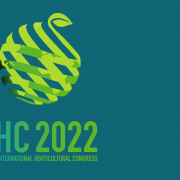Displaying 2680

News
On 18 and 19 August 2022, the OIV hosted a symposium as part of the 31st International Horticultural Congress (IHC).
09 Sep 2022
Events
21/08/2022 - 24/08/2022

On 18 and 19 August 2022, the OIV hosted a symposium as part of the 31st International Horticultural Congress (IHC).